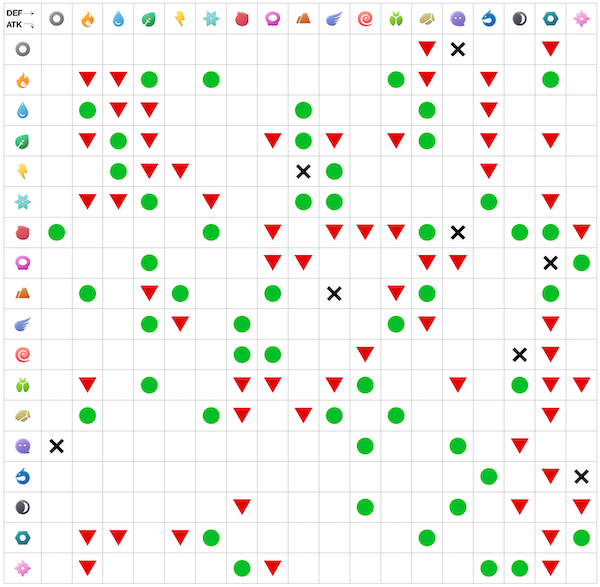Understanding Pokémon types and attack types is an essential part of becoming a skilled Pokémon Trainer. Pokémon have different types, and so do their attacks. These types strongly influence the effectiveness of defense and attacks in battle.
Each type has various strengths and weaknesses, so it’s important to design your battle parties with a strategic combination of types to cover a wide range of potential attacks or specifically target weaknesses in another party’s defense.
For example, from a defending perspective, Grass-type Pokémon like Tangela are weak against Flying-, Poison-, Bug-, Fire-, and Ice-type attacks but strong against Ground-, Water-, Grass-, and Electric-type attacks. From an attacking perspective, Grass-type attacks are strong against Water-, Rock-, and Ground-type Pokémon and weak against Bug-, Fire-, Flying-, Grass-, Poison-, Dragon-, and Steel-type Pokémon.
In a battle, you can tell if an attack is strong or weak by the prompts that appear on screen. Strong attacks are super effective, while weak attacks are not very effective.
Dual-Type Pokémon
Some Pokémon have two types rather than just one. Rayquaza, for example, is a Flying- and Dragon-type Pokémon. This means Rayquaza is extra weak against Ice-type attacks, since Ice-type attacks are strong against both Dragon- and Flying-type Pokémon.
On the other hand, Rayquaza is extra strong against Grass-type attacks, because Grass-type attacks are weak against both Dragon- and Flying-types.
Matching Attack Types with Pokémon Types
Pokémon often know and learn moves that match their type. For example, Pikachu is likely to know Electric-type attacks when first caught and can learn Electric-type attacks from TMs.
A Pokémon’s attack receives a boost in power when they use attacks that match their type. This means if an Electric-type Pokémon uses Electric-type and non-Electric-type Charged Attacks with the same damage output, the Electric-type attack will do more damage than the non-Electric-type attack. Pokémon still may know and learn attacks that don’t match their type, but these attacks don’t receive power boosts.
Dual-type Pokémon can take advantage of this with attacks that match either of their types. Consider teaching Dual-type Pokémon attacks that match both of their types to maximize your damage potential.
Immunity
Some Pokémon are immune to certain types of attacks. In Pokémon GO, this means they take even less damage than other “not-very-effective” attacks. For instance, Ghost-type Pokémon are immune to Normal-type attacks and strong against Poison-type attacks, so a Pokémon using a Normal-type attack will do less damage than a Poison-type attack of the same strength.
Strength, Weakness, and Immunity by Type
Type Chart Legend
Y-axis = Attacking
X-axis = Defending
Green circle = Super effective
Red triangle = Not very effective
White space = Normal effectiveness
Black X = Immune





















